Although Nancy Ward, also known as Nanyehi, gained respect from her people by courageously leading a group of Cherokee warriors to victory against an enemy tribe, she later dedicated her life to establishing a peaceful coexistence with white settlers.
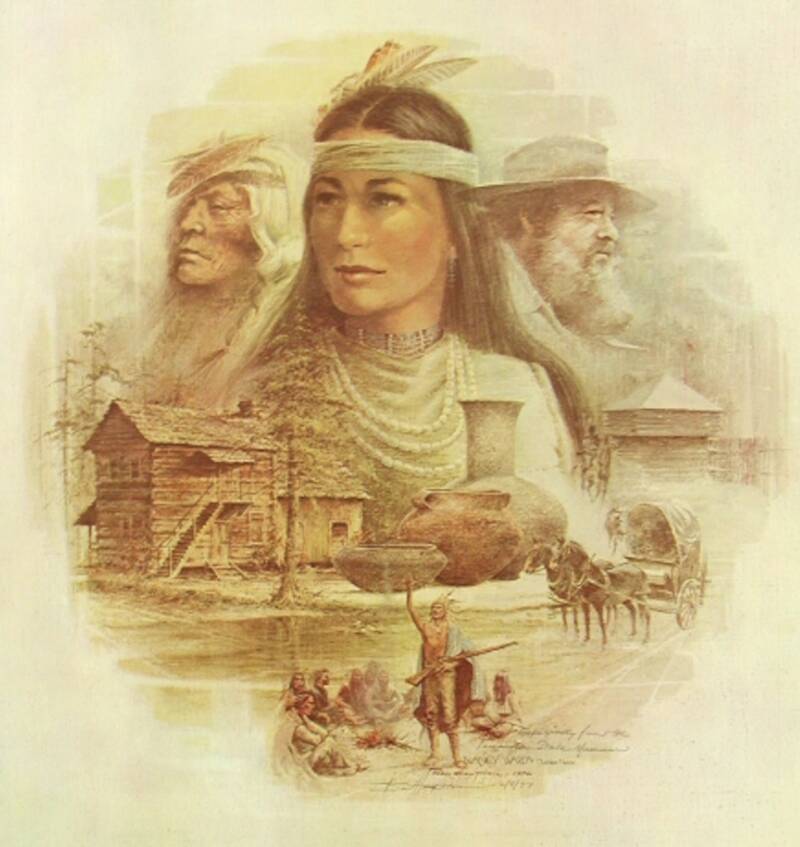
Tennessee State Museum CollectionCherokee leader Nancy Ward fought to save lives on both sides of the conflict between Native Americans and white settlers.
In the 1700s, a wave of European settlers crashed into the ancestral homeland of the Cherokee people. Raids sowed death and destruction for white homesteaders and Indigenous villagers alike. However, a courageous Cherokee woman stood up for peace — and she saved lives on both sides. Her name was Nancy Ward.
Her uncle negotiated treaties with the British. Her cousin raided white settlements. And after leading the Cherokee to victory in battle and earning the respect of her people, Nancy Ward fought for peace.
Ward, who was born into a Cherokee tribe with the name Nanyehi, dedicated her life to unifying her people and white settlers. She married an Irish man and introduced European culture to her tribe, and she even addressed U.S. officials in an effort to maintain possession of Cherokee land.
In the end, however, Nancy Ward had to leave her homeland when the U.S. government purchased the Cherokee Nation territory that included her village. Today, she’s remembered as a hero by many people — but a traitor by others. This is her controversial story.
How Nanyehi Earned The Title ‘Beloved Woman’
Better known to English speakers as Nancy Ward, Nanyehi was born in 1738. She grew up in the village of Chota in eastern Tennessee, which was considered the “mother town” of the matrilineal Cherokee people.
A member of the Wolf Clan of the Cherokee Nation, Nanyehi came from a family of diplomats. Her uncle, Attakullakulla, was a chief who traveled to London as part of a diplomatic mission. Attakullakulla advocated for cooperation with the British and the colonists moving into Cherokee territory.
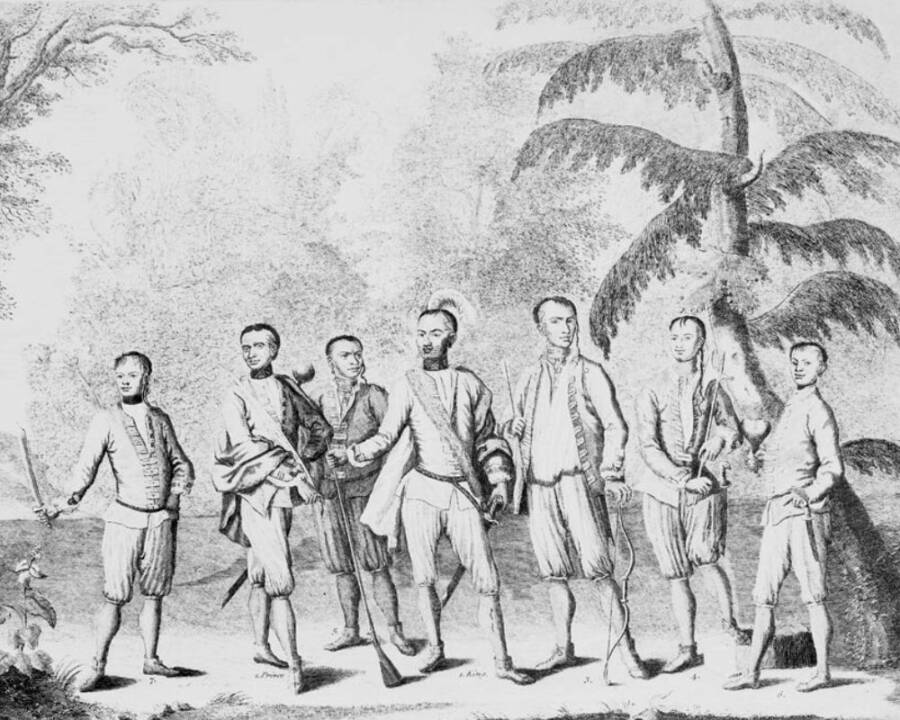
Public DomainAn 18th-century engraving of Attakullakulla and the other Cherokee chiefs who traveled to London in 1730.
In the 18th century, white settlers flocked to the Appalachian foothills where the Cherokee lived. The British banned settlements west of the Appalachians, wanting to maintain their hold on the fur trade and limit conflict with the Native American tribes who had fought on the British side against the French, including the Cherokee.
As an adult, Nanyehi carried on her uncle’s mission of coexistence with white settlers — but she was not always an advocate for peace.
Before her 20th birthday, Nanyehi married, had two children, and became a widow. Ward’s husband died during the Battle of Taliwa in 1755 when the Cherokee raided their local rivals, the Creeks.
During the battle, Nanyehi stood at her husband’s side. As he loaded lead bullets into his rifle, Nanyehi reportedly chewed on each one to increase the damage they would cause. When her husband fell, Nanyehi grabbed his gun and led the Cherokee warriors to victory.
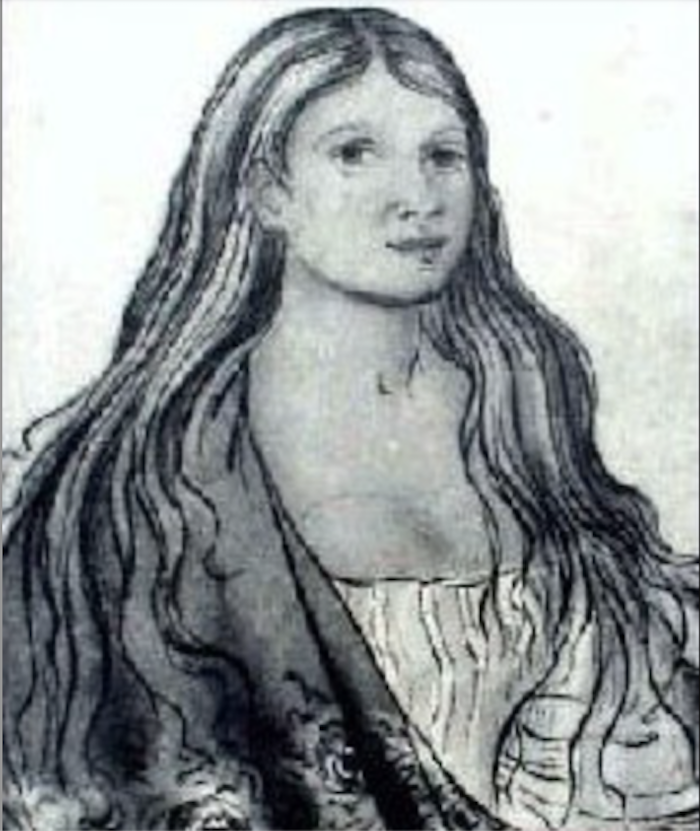
Public DomainNanyehi earned her place on the Cherokee General Council by leading her people to victory against the Creeks.
Her courage in battle earned Nanyehi a new title: Ghigau, or “Beloved Woman.” The honorific celebrated Nanyehi as a leader and earned her a position on the Cherokee General Council, on which she was the only woman with a vote. Nanyehi also led the Women’s Council of Clan Representatives and gained authority over prisoners captured in battles or raids.
This put the woman who would soon become known as Nancy Ward in the perfect position to fight for peace.
Nanyehi Marries An Irish Man And Becomes Nancy Ward
In the 1760s and ’70s, the growing number of white colonists in Indigenous territory increased tensions amongst the Cherokee. Some wanted to attack the settlers and drive them out, while others argued for coexistence. Nanyehi built bridges between the two sides and even married an Irish man.
When she met an Irish trader named Bryant Ward, Nanyehi decided to remarry and took the Anglicized name Nancy Ward. Her husband eventually returned to his white wife and children in South Carolina, but Ward remained in Chota.
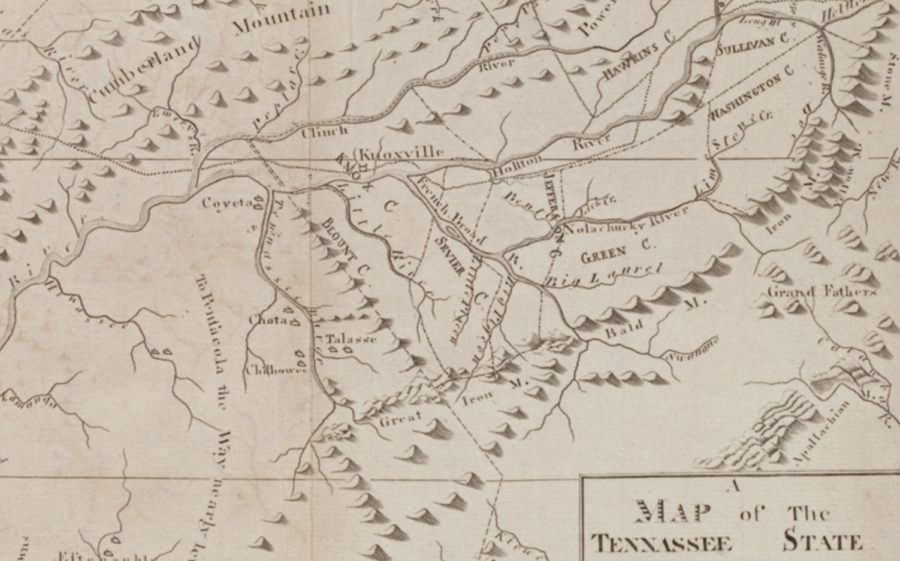
Public DomainA c. 1800 map of Tennessee shows the Cherokee town of Chota, where Nancy Ward spent most of her life.
During the American Revolution, many Cherokee supported the British. However, Ward’s cousin, Tsiyu Gansini, or Dragging Canoe, wanted to take advantage of the war to drive colonists off of Cherokee land. In the summer of 1776, Dragging Canoe planned to raid a nearby white settlement, but Ward thwarted his plans.
She released three European prisoners and asked them to warn the other settlers of the attack. The colonists were able to evacuate most of the women and children and set up an ambush to surprise the Cherokee. Dragging Canoe and his fellow warriors managed to take a prisoner, Mrs. William Bean, and they wanted to burn her alive — but Ward refused.
Because of her position as a Beloved Woman, Ward had the right to free any prisoner, so she stopped the warriors from killing Mrs. Bean. According to a 2019 profile of Nancy Ward in the Chattanooga Times Free Press, Mrs. Bean was so grateful that she taught Ward how to care for cattle and make butter and cheese. In turn, Ward introduced these practices to other women in her tribe — and some say she even became one of the very first Cherokee people to own a dairy cow.
This incident was just one of many in Nancy Ward’s lifelong battle for peace.
Inside Nancy Ward’s Fight For Peace Between The Cherokee And European Settlers
In addition to saving the lives of white colonists, Nancy Ward’s determination to achieve peace also saved her fellow Cherokee people. A few months after Ward saved Mrs. Bean, a frontier militia attacked the Cherokee — but the man leading the raid ordered his troops not to touch Ward’s village.
Still, conflict raged on between the Cherokee and the settlers. Ward spoke with colonial government officials on at least three occasions in an attempt to advocate for peace as well as for women’s rights. She believed that women were the key to unifying Cherokee and European people.
In 1781, she even addressed the U.S. Treaty Commission, as reported by TIME. There, she stated, “You know that women are always looked upon as nothing; but we are your mothers; you are our sons. Our cry is all for peace; let it continue. This peace must last forever. Let your women’s sons be ours; our sons be yours. Let your women hear our words.”
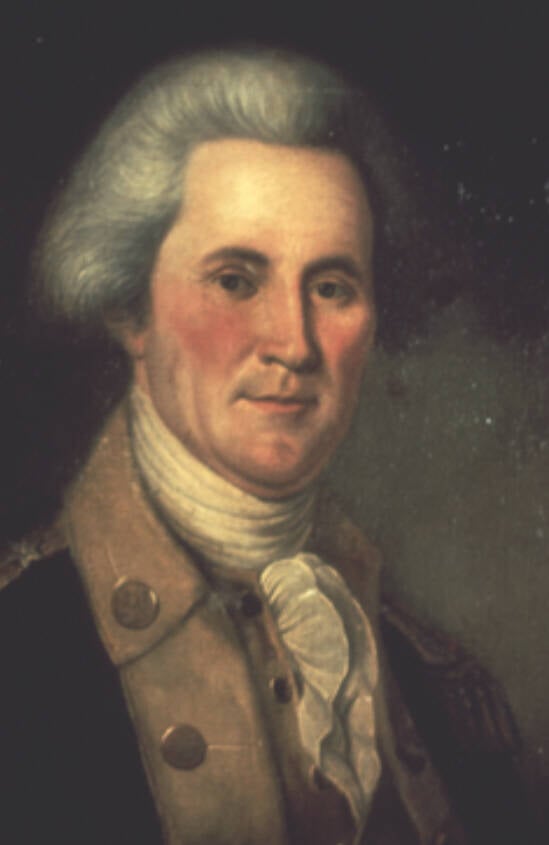
Public DomainFuture Tennessee Governor John Sevier had a close relationship with Nancy Ward and listened to her during negotiations.
American men were puzzled over the importance of women in Cherokee culture. Still, Ward’s arguments had an impact. In 1781 and 1785, the Cherokee retained their lands, with the U.S. promising that white homesteaders would leave.
Unfortunately, the peace did not last. White settlers refused to leave Cherokee land, and tensions flared for decades. By the early 19th century, some Cherokee leaders had sold their lands and moved. Nearly 80 years old and now known as “Granny Ward,” the Beloved Woman argued against leaving their homeland.
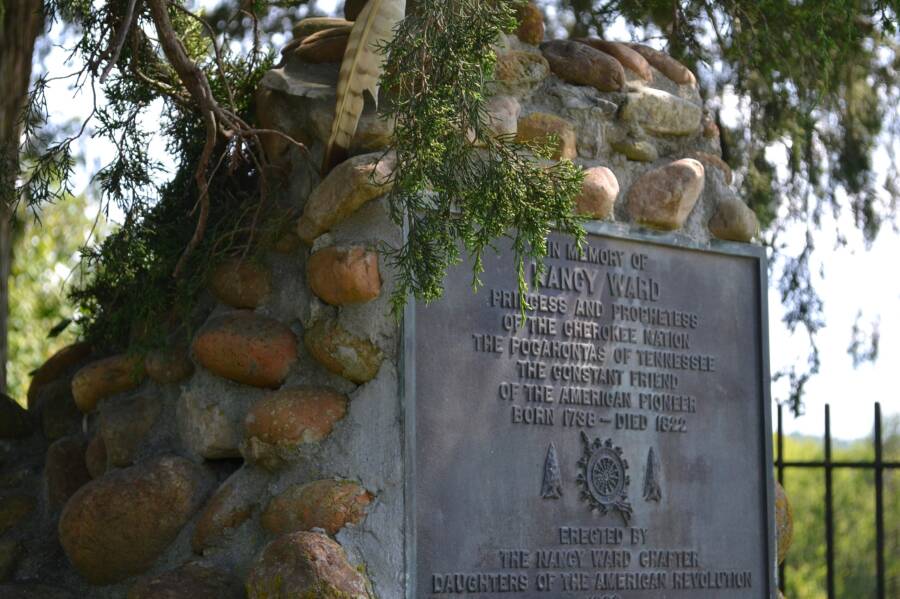
Jamie Hargis/Wikimedia CommonsNancy Ward’s grave, which dates to the 1920s, proclaims her a “friend of the American pioneer.”
“We have raised all of you on the land, which we now have, which God gave us to inhabit and raise provisions,” Ward wrote in a letter to the council. “Your mothers, your sisters ask and beg of you not to part with any more of our lands.”
However, in her final years, another land sale forced Ward to leave her hometown of Chota, and she became an innkeeper in southeastern Tennessee until she died in 1822. Today, Nancy Ward’s legacy is controversial. While many see her as a hero who brought peace, some Cherokee people saw her as a traitor who attempted to Westernize her tribe and fraternized with the enemy.
Regardless, she remains a key figure in American history as the Cherokee’s last “Beloved Woman.”
After reading the story of Nancy Ward, learn about nine other Native American women who made history. Then, read about the tragic history of the Trail of Tears.





